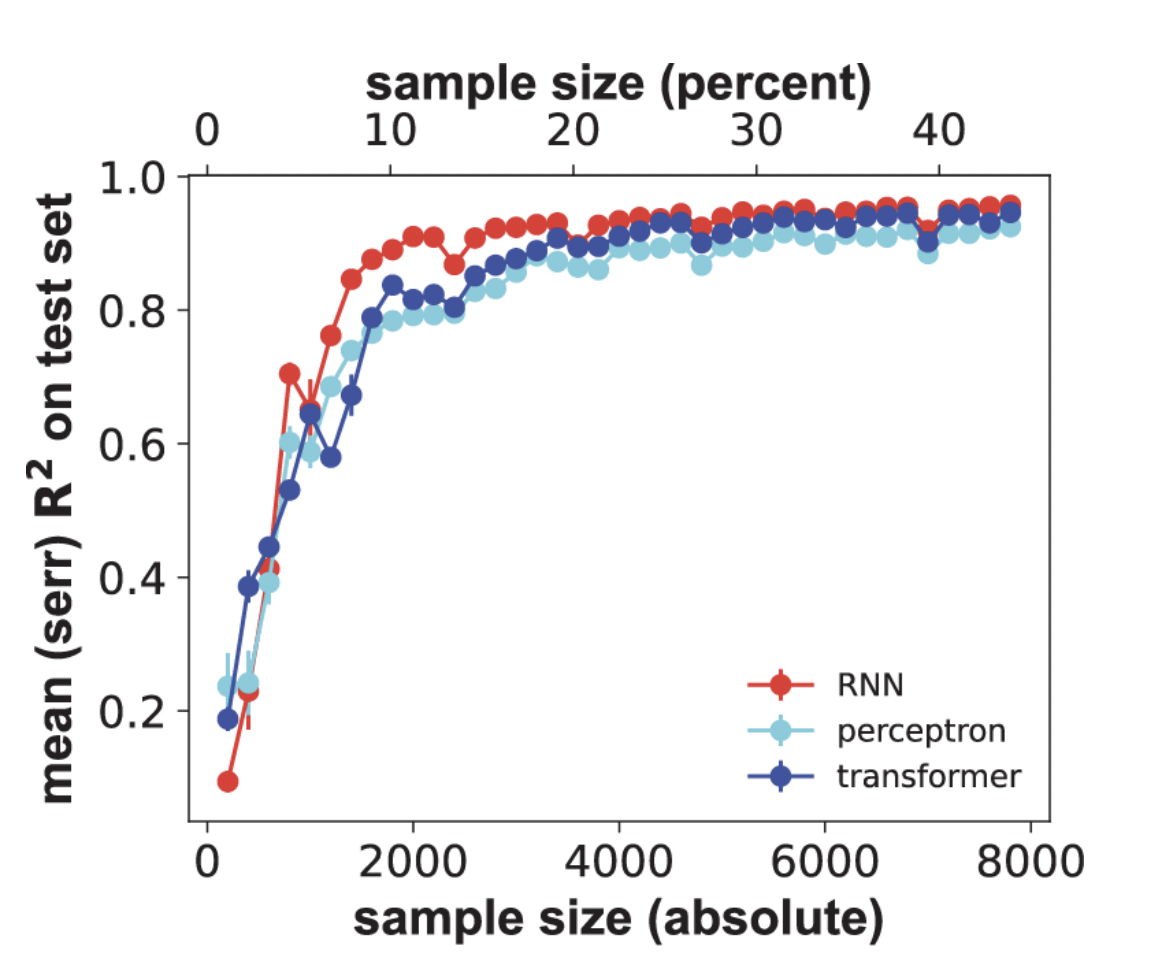This AI Paper Explains the Deep Learning’s Revolutionizing Role in Mapping Genotypic Fitness Landscapes

[ad_1]
Fitness landscapes, a concept in evolutionary biology, represent how genetic variations influence an organism’s survival and reproductive success. They are formed by mapping genotypes to fitness, a measure of an organism’s ability to thrive and reproduce. These landscapes are central to understanding evolutionary processes and advancements in protein engineering. However, mapping these landscapes involves assessing the fitness associated with a vast array of genotypes, which is both daunting and practically unfeasible with traditional methods due to the enormous number of potential genotypes for any given protein.
The detailed mapping of fitness landscapes is a formidable challenge in evolutionary biology. This task necessitates evaluating the fitness of a wide variety of genotypes. Given the immense number of potential genotypes for any specific protein, this task is challenging and virtually impossible with conventional methods. This predicament requires new and innovative approaches to predict and analyze these extensive and complex fitness landscapes.
Fitness landscape studies have involved experimental methods to measure the fitness of various genotypes. These studies, while informative, face significant limitations due to the high-dimensional nature of genotypes and the intricate, non-linear interactions of genetic components in determining an organism’s fitness. The complexity of these interactions has made theoretical models inadequate for predicting fitness from genotypes, leading to a demand for more sophisticated methodologies.
A researcher from the University of Zurich has turned to deep learning as a potent tool. Deep learning models, such as multilayer perceptrons, recurrent neural networks, and transformers, have been employed to forecast the fitness of genotypes based on experimental data. This innovative approach leverages machine learning’s capabilities to process and analyze large datasets, offering a more effective way to map fitness landscapes compared to traditional methods.
These deep learning models operate by training on a subset of genotypes with known fitness values and use this information to predict the fitness of a larger set. The effectiveness of these models is largely influenced by the sampling method used for training. Research has shown that certain sampling strategies, like random and uniform sampling, considerably improve the model’s accuracy in predicting fitness compared to other methods.
The study revealed that deep learning models are impressively effective, with some explaining over 90% of fitness variance in the data. A significant finding was that a high level of prediction accuracy could be achieved with relatively small training samples. This result suggests a shift in the study of fitness landscapes, making the process more efficient and less dependent on large experimental data. It also indicates that the choice of sampling strategy is crucial in enhancing the performance of deep learning models.
In conclusion, this research represents a significant step forward in fitness landscape studies. It highlights the utility of deep learning in overcoming the limitations of conventional methods, offering a more scalable and efficient approach to mapping the complex relationship between genotypes and fitness. The findings also underscore the importance of sampling strategies in optimizing the performance of deep learning models. This opens new avenues for evolutionary biology and protein engineering research, indicating a potential paradigm shift in how fitness landscapes can be studied and understood.
Check out the Paper. All credit for this research goes to the researchers of this project. Also, don’t forget to follow us on Twitter. Join our 36k+ ML SubReddit, 41k+ Facebook Community, Discord Channel, and LinkedIn Group.
If you like our work, you will love our newsletter..
Don’t Forget to join our Telegram Channel
![]()
Sana Hassan, a consulting intern at Marktechpost and dual-degree student at IIT Madras, is passionate about applying technology and AI to address real-world challenges. With a keen interest in solving practical problems, he brings a fresh perspective to the intersection of AI and real-life solutions.
[ad_2]
Source link
